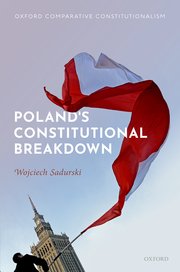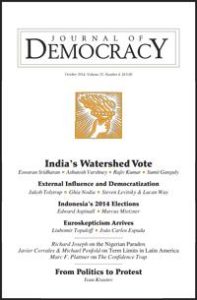 Poland’s anti-constitutional breakdown triggers three major questions: what exactly has happened, why it has happened, and what are the prospects of a return to liberal democracy? These answers are formulated against the backdrop of current worldwide trends towards populism, authoritarianism, and what is sometimes called “illiberal democracy”, argues Wojciech Sadurski, Challis Professor of Jurisprudence at the University of Sydney and Professor at the University of Warsaw Centre for Europe.
Poland’s anti-constitutional breakdown triggers three major questions: what exactly has happened, why it has happened, and what are the prospects of a return to liberal democracy? These answers are formulated against the backdrop of current worldwide trends towards populism, authoritarianism, and what is sometimes called “illiberal democracy”, argues Wojciech Sadurski, Challis Professor of Jurisprudence at the University of Sydney and Professor at the University of Warsaw Centre for Europe.
The Polish variant of “illiberal democracy” is an oxymoron. By undermining the separation of powers, the ruling party concentrates all power in one hand, thus rendering any democratic accountability illusory, he writes for the OUP blog:
Despite the grim subject matter, there is nothing inevitable about the decline of Polish democracy. Poland has the strong societal and political resources necessary to arrest and reverse the negative trends, and then unravel all the nefarious institutional changes brought about by PiS rule, difficult though it will be. There is still a vibrant and resilient civil society, there are strong even if rather ephemeral social protest movements, there is an independent body of commercial media, both electronic and print, and there are passionate debates in social media.
 In the run-up to the parliamentary elections, which will take place this October (a precise date is not yet determined) these “democratic assets” may turn decisive to help the pro-democratic forces prevent the re-election of PiS. Otherwise, the future is very grim indeed, adds Sadurski, the author of Poland’s Constitutional Breakdown (OUP 2019).
In the run-up to the parliamentary elections, which will take place this October (a precise date is not yet determined) these “democratic assets” may turn decisive to help the pro-democratic forces prevent the re-election of PiS. Otherwise, the future is very grim indeed, adds Sadurski, the author of Poland’s Constitutional Breakdown (OUP 2019).
Poland is also a state where social-democratic parties shifted to the center on economic policy, not only sapping the electoral strength of these parties, but also opening up political space for the populist right, note analysts Maria Snegovaya and Sheri Berman. The transition out of communism in Eastern Europe created winners and losers, they write for the NED’s Journal of Democracy.







